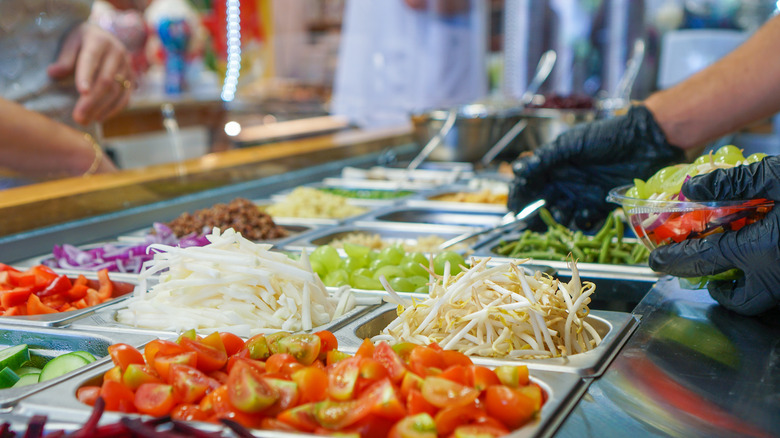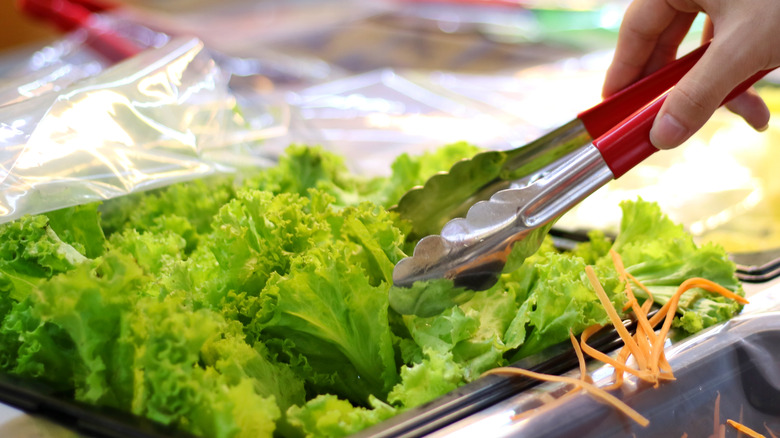Are Open Salad Bars Bad For You?
Unlike ordering food off a menu, one of the draws of a self-serve buffet bar is that you have control over your plate. Getting a sweet deal on an all-you-can-eat salad bar is all the better knowing that you can pile on the greens while the price stays the same. Whether you've enjoyed an open salad bar at a restaurant or a grocery store, we can't help but wonder, with all those salad ingredients left openly exposed to the elements, are salad bars truly safe?
As reported by the New York Times, there is no food industry limit on how long items can be left out in the open at a salad bar. In some instances, this has led to food being recycled for use the following day.
Dr. Michael Doyle, director of the Center for Food Safety and Quality Enhancement at the University of Georgia, discussed the potential health risks associated with salad bars with the Times. "One of the major concerns is the length of time food is on a salad bar," Dr. Doyle told the Times. "Many keep refilling it without washing up the containers. Sometimes they take the food off the salad bar, replenish it and refrigerate it overnight, and that gets them in more trouble than anything because of temperature abuse, which is one of the leading causes of food-borne disease."
Salad tongs are a hot spot for bacteria
Not only does the food at a salad bar pose a potential risk for foodborne illness, but so do the serving utensils. A 2016 study published in the Journal of Food: Microbiology, Safety & Hygiene examined the presence of E. coli at salad bars. A two-part study found there was a 10% rate of transfer for E. coli between consumer hands to salad bar tongs. Conversely, there was a 5% rate of transfer between salad bar tongs to consumer hands. Overall, however, the transfer risk of E. coli between hands and tongs and tongs-to-hands totaled more than 50%.
While most cases of E. coli infection are not severe, symptoms can include abdominal discomfort, fever, nausea, vomiting, and diarrhea (via the Cleveland Clinic). On average, symptoms tend to develop within 3-5 days after having ingested contaminated food. While many cases will clear up naturally with proper hydration and without the need for medical attention, more severe infections can lead to kidney failure and death. The most susceptible people to bacterial infection are the elderly and those with compromised immunity.
Washing your hands before and after serving yourself at a salad bar can reduce the risk of bacterial transfer, according to Local 12. Alternatively, you can use a napkin when handling salad tongs.


